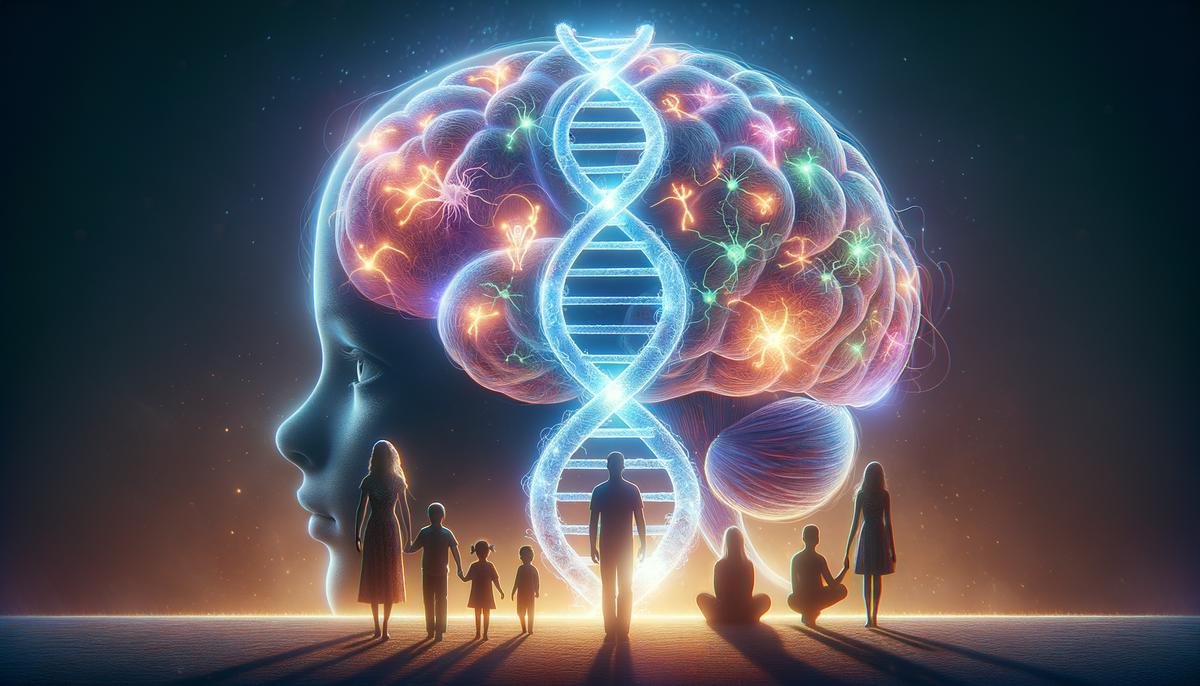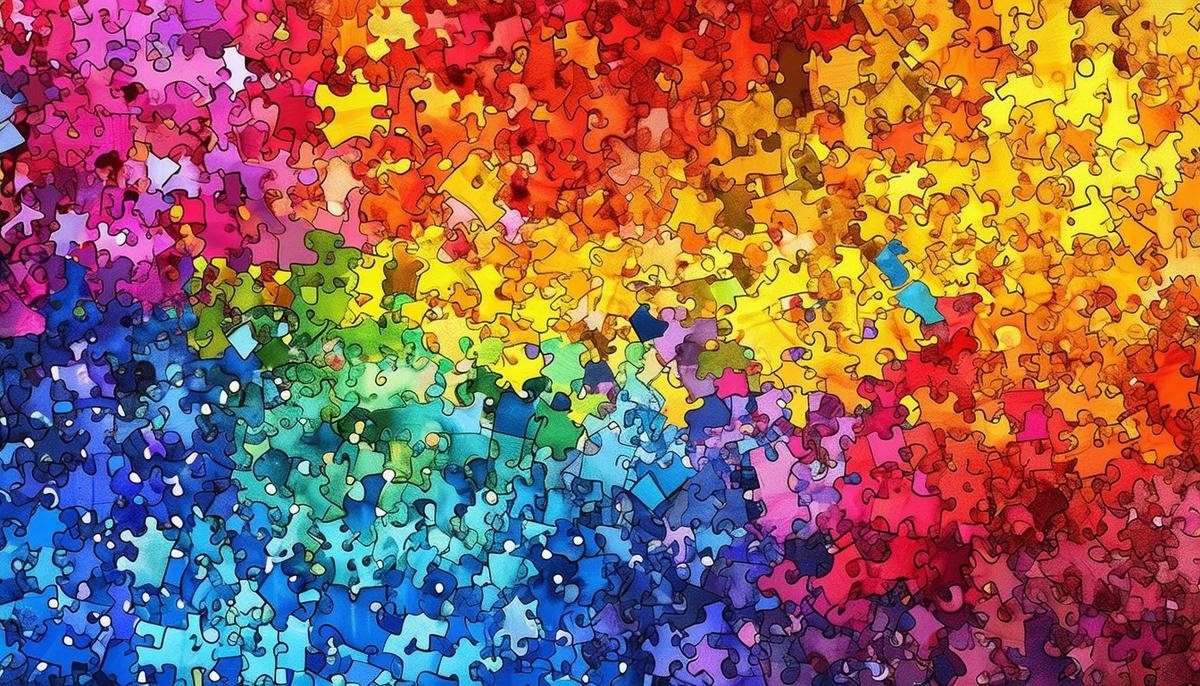
In an era burgeoning with diversity and inclusion, understanding and appreciating the diverse neurological experiences within our society is a responsibility. One such subset of our community that often goes under-emphasized is adults who live with autism. The prevalence of information regarding children with autism is vast, but when it comes to adults, resources are not as abundant. With over 3.5 million people in the U.S. living on the spectrum, knowing the distinguishing signs of autism in adults, the specific challenges they face, the strategies that most effectively support them, and the resources available to them is an important facet of our collective consciousness. A comprehensive knowledge of the subject can make us more empathetic, sensitive, and effective in supporting the endeavours of this neurodiverse group of adults.
Recognizing the Signs of Autism in Adults
Heading: Unfolding the Narrative: Key Signs of Autism in Adults
As they say, life is a beautiful journey filled with unexpected surprises. Now, when you think of a journey, it’s often the marvelous destinations that come to mind first, right? Yet, it’s the little breadcrumbs and signposts along the way that essentially guide us towards them. Understanding autism in adults stirs a similar visualization.
Autism is a neurological condition typically recognized in childhood and often assumed to be exclusive to this age group. However, many adults might have found themselves on this unexpected path and may be unaware. Recognizing the key signs of autism in adults would be akin to those delightful breadcrumbs guiding their journey, fostering a deeper understanding of themselves or a loved one.
Unexpected Social InteractionsOne of the most evident signposts is difficulty in social situations. An adult with autism might find it challenging to interpret non-verbal communication cues. This can include the tone of voice, facial expressions, body language, or even seemingly subtle nuances in a conversation, like sarcasm. They might also struggle with maintaining or initiating conversations.
Intense Focus on Specific InterestsA hallmark sign of autism is a laser-focused interest in specific topics or hobbies. These interests may vary from person to person, ranging from science fiction to trains. When engrossed in these interests, they may find ample contentment, focusing on them for hours without realizing the passing of time.
Repetitive BehaviorsPeople with autism often find safety in regimented routines and predictable patterns. They might showcase repetitive behaviors or rituals and respond poorly to change. Obsessiveness about schedule changes, reactions to sensory stimuli, and an unusual attachment to particular objects are common examples.
Sensory SensitivitySensory sensitivity can range from being overly responsive or simply under-responsive to specific sensory stimuli. Loud noises, harsh lights, certain textures in food or clothing may cause discomfort. On the flip side, some individuals may seek out certain sensory experiences for their calming effect.
Troubles With Executive FunctionStruggles with executive functioning skills are another breadcrumb on our path. Autism might lead to difficulties with planning, organizing, problem-solving, focus and comprehending abstract ideas. Completing routine tasks or sustaining productivity can often feel like steep uphill climbs.
These signposts, helping identify key signs of autism in adults, promise a richer understanding of the world from their perspective. However, it’s vital to note that every individual with autism is unique, portraying a differing melange of these signs. It’s about breaking the stereotype of “one size fits all” and focusing on the wondrous individuality that illuminates our unique journeys.
In the grand scheme of things, the understanding and identification of these traits aren’t about labelling, but about acquiring tools that fortify the bridges of empathy and compassion between us all. It’s like moving towards an empathic and welcoming neighborhood that embraces everyone’s uniqueness. Isn’t that the kind of world we’d all love to live in?

Photo by iamdarosaa on Unsplash
Challenges Faced by Adults with Autism
Unraveling the Complexities: Unique Challenges Confronted by Autistic Adults
Too often, society’s understanding of autism gets muddled under the vast umbrella of ‘special needs’. With an increasing number of adults being diagnosed as being on the spectrum each year, shedding light on the unique challenges they face is fundamental. While we’ve already delved into a few aspects like the shift in standard social environments, or the nuances in behavior, interests, and sensory experiences, there’s so much more to explore.
Contrary to the popular stereotype, no two people with autism are exactly alike. Hence, the challenges they face may take different forms for different individuals. This piece will expand on some of the other less talked about, yet significant hurdles and experiences of those living with autism.
A critical concern among adults with autism includes difficulties in maintaining steady employment. Particularly, their struggles often revolve around social understanding, sensory sensitivities, and adapting to new routines or changes in the work environment. Despite the unique set of skills and problem-solving approaches they bring to the table, many find themselves unemployed or underemployed, largely due to these overlooked challenges.
Healthcare, another vital element, presents its set of challenges. As per the World Health Organization (WHO), adults with autism often face difficulties in accessing healthcare. Misdiagnosis, lack of awareness, and inadequate training of health care professionals contribute to this challenge. The unique communication style of autistic adults, along with sensory sensitivities, can make medical interactions extremely stressful, often leading to delayed or disjointed care.
Mental health is another realm where the impediments posed to autistic adults are profound, adding an extra layer to the various facets of autism. Individuals on the spectrum are more likely to struggle with anxiety and depression due to a variety of factors including social isolation, stigma or bullying. The lack of appropriate mental health support for adults with autism is a massive concern that demands immediate attention.
Yet another hurdle in the labyrinth of autistic adulthood can be navigated to the realm of romantic relationships. Due to varying patterns of social interaction, dating, romantic relationships and even maintaining friendships can prove to be daunting tasks for autistic adults. Misinterpretations of social cues or an inability to express feelings in conventionally ‘acceptable’ ways can often lead to strained relationships.
Despite these challenges, it is far from a grim narrative. Just like every cloud has a silver lining, adults with autism are constantly showing the world how their unique perspectives can lead to breakthrough inventions, developments, and creations. Overcoming each hurdle can evolve into a testament to resilience and strength. In understanding these challenges, building bridges of empathy and support, we can help cultivate a more diverse and inclusive society, a world where every single individual truly matters.
Remember, everyone has challenges they face, but it’s the understanding of these challenges that breeds acceptance and inclusivity. Shrouding them in mystery does no one any good. It only perpetuates misinformation and misunderstanding. By taking the time, making the effort, and having the compassion to understand, we can help to break down these barriers and foster an inclusive and welcoming world for everyone.

Strategies for Supporting Adults with Autism
Enhancing the Support System for Adults with Autism: Going the Extra Mile
Putting just a little more understanding, empathy, and patience into the world can create a huge positive impact on adults living with autism. While it’s crucial to understand the individuality of autism and its diverse presentations, it’s equally essential to zero in on the unique challenges faced by autistic adults, particularly in areas like employability, healthcare, mental health, and social relationships.
When it comes to employment, it’s a common struggle for autistic adults to secure and maintain steady work. The standard workplace environment often doesn’t cater to their specific needs, requiring individuals with autism to continuously adapt to their surroundings. As a society, more can be done to create workplaces that are inclusive. This could involve having more flexible working conditions, offering support to managers and colleagues for better understanding autism, and raising awareness about their unique talents and abilities.
Healthcare poses another significant challenge for autistic adults. Misdiagnosis is a frequent occurrence due to a lack of awareness and understanding of autism among healthcare professionals. It’s crucial to improve access to properly trained medical practitioners and methodology for accurate diagnosis and treatment to ensure mental and physical wellbeing.
When it comes to mental health, individuals with autism are more prone to conditions like anxiety and depression. Because of their different perception of the world, they may struggle to cope with everyday stresses and changes. Improving access to specialized mental health services can provide the coping mechanisms and support they need to quell these concerns.
Another area of concern is the difficulties autistic adults might face in forming romantic and social relationships. With a different understanding of social norms, they might find it challenging to navigate through the complex world of romantic relationships or to understand the unwritten rules of interaction. Reinforcing the importance of open, patient, and accepting interactions can help significantly. There’s much beauty to be found in getting to know someone who experiences the world differently.
Autistic adults offer much potential for innovation and success. Their unique perspectives can challenge the norm, create fresh ideas, and stimulate growth. From leading technology companies to writing best-selling novels, their immeasurable potential is a testament to why companies and societies should be more inclusive.
Understanding and supporting autistic individuals shouldn’t be a choice; it’s a collective responsibility. A conscious effort to educate oneself and promoting inclusivity in every sphere of life can foster a more understanding society. While baby steps are a start, consistent and sustained progress is key.
Supporting adults with autism isn’t about overhauling the world overnight. It’s about small changes every day that hold the power to make our communities more welcoming and inclusive. It’s about taking that extra step, offering a hand, and truly seeing each person for the unique and incredible individual they are. After all, a more compassionate world is a better world for everyone.

Photo by hannahbusing on Unsplash
Resources Available for Adults with Autism
From your reading, you might already know that living as an adult with autism presents unique challenges. While awareness about autism is certainly growing, let’s go a step further and ask: What resources are available to adults with autism? Let’s make it a mission to not just acknowledge autism, but actively understand, support and enable individuals on the spectrum to reach their full potential.
Finding the right resources can be a lifeline for autistic adults. Fortunately, a variety of resources are available, from support groups and vocational training programs to helpful apps and mental health services. Let’s take a closer look.
Autism Support Networks are one of the most beneficial resources available. They offer a safe space for individuals with autism to connect and share personal experiences, tips, and strategies. These networks can be incredibly empowering, helping anyone on the spectrum to realize they are not alone, and there are plenty of people out there who share their experiences and understand their unique challenges.
Autism Speaks, The Autism Self Advocacy Network, and Wrong Planet are among the many online forums where adults on the spectrum can turn to for support, advice, and camaraderie.
Employment support services are another important resource. Numerous organizations, such as The Arc and Autistic Advancement, offer vocational training and employment support, helping autistic adults build the skills necessary for a fulfilling and successful career. Some large corporations like Microsoft and SAP have inclusive hiring initiatives specifically designed to tap into the unique skills and talents of those with autism.
Technology can also be a great help. There are several applications designed specifically for autistic adults to assist with day-to-day tasks, from time management tools to social interaction apps. If you or a loved one has been wondering how to juggle work responsibilities, manage finances or navigate tricky social situations, these resources can be invaluable.
Mental health services specializing in autism are also available and can make a huge difference in the life of an autistic adult. Anxiety, depression and other mental health issues can often accompany autism; trained professionals can provide therapeutic tools and strategies to manage these challenges effectively. It’s always important to remember you’re not alone and help is available.
Lastly, resources like Autism Navigator and the Autism Housing Network provide valuable guidance on navigating daily life, from finding suitable housing to understanding public benefits, further helping autistic adults live independently.
Knowledge is power, and understanding the wealth of resources available can make a world of difference. By leaning on these various tools, services, and networks, adults with autism have a hearty toolbox to help them navigate life’s many nuances. Let’s not just be aware of autism, but proactively create an environment of understanding and support, because our shared strength as a community can empower individuals on the spectrum to shine brightly.

The journey to understanding and supporting adults with autism is nuanced and complex, like navigating a labyrinth. Learning about the signs, acknowledging the unique challenges, implementing effective strategies, and finding the most fitting resources constitute the road map that can lead us through. The more we engage in this journey, the better equipped we become to foster understanding, practice empathy, and enhance inclusion. Our collective effort can dissipate the barriers that restrict adults with autism, hence allowing them the space and freedom to unleash their potential and enjoy a fulfilling life. It isn’t only about making their lives easier, it’s about recognizing and celebrating the myriad ways they add vibrancy and depth to our society.




